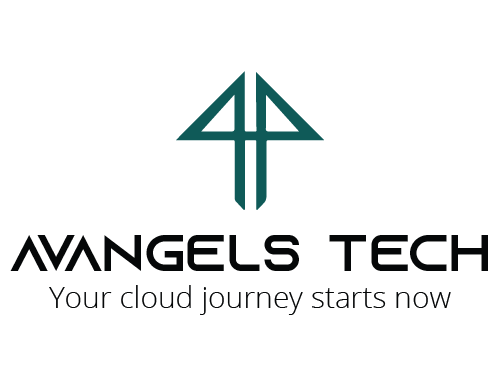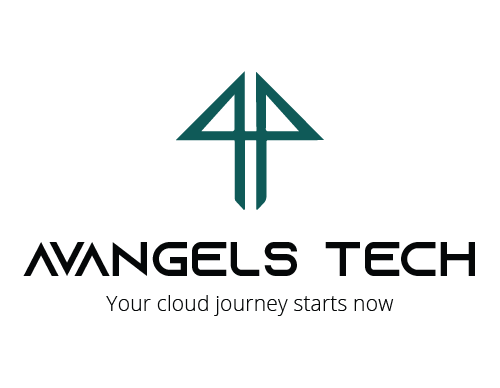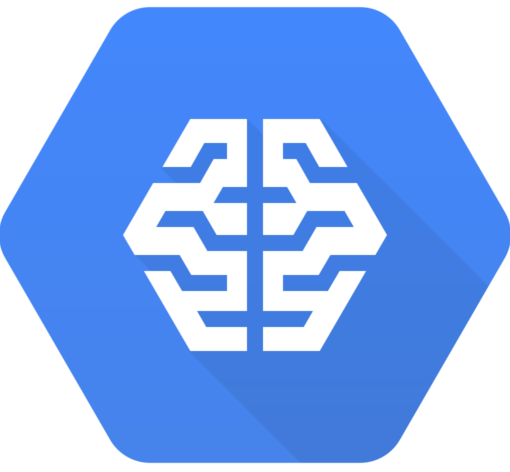Google Cloud AI
Powering Innovation and Transformation
This series of blogs looks at some of the most popular and commonly used services on the Google Cloud Platform. In this blog, we discuss Google Cloud AI.
Additional Reading
For official documentation on “AI and Machine Learning Products”, please visit the official Google Cloud website.
For more detailed documentation on “Google Cloud AI”, please visit the official Google Cloud website.
To get a deeper understanding of “Google App Engine”, please refer to the attached link.
To get more information on “Google Cloud Functions”, please refer to the attached link.
To get more information on “Google Pub/Sub”, please refer to the attached link.
To view more such blogs on “Google Cloud Services”, please refer the attached link.
Introduction
In today’s digital age, data has become the lifeblood of businesses, governments, and organizations across the globe. Extracting valuable insights from this data is crucial for staying competitive and making informed decisions. At the forefront of this AI revolution is Google Cloud AI, powered by the formidable machine learning capabilities of Google. Google Cloud AI is a suite of powerful tools and services, part of the Google Cloud Platform, that empower businesses to harness the full potential of AI for innovation and growth.
Artificial Intelligence (AI) has become an integral part of our daily lives, impacting industries, businesses, and society at large. Google, a company synonymous with innovation, has made significant strides in the field of AI through Google Cloud AI. This comprehensive suite of AI tools and services is empowering organizations to harness the potential of AI, making it more accessible and practical than ever before. From automating repetitive tasks to making data-driven decisions, Google Cloud AI is reshaping industries and pushing the boundaries of what’s possible.
In this blog post, we will explore the world of Google Cloud AI, its key components, and how it is revolutionising industries across the globe.
Understanding Google Cloud AI: A Brief Overview
Google Cloud AI is a suite of Machine Learning (ML) and Artificial Intelligence (AI) services offered by Google Cloud. It leverages the robust infrastructure and expertise developed through years of Google’s innovation in AI and ML, including TensorFlow, a popular open-source machine learning framework. This cloud-based AI platform enables businesses to harness the full potential of their data through a wide range of services and tools.
Leveraging Google’s extensive experience in AI, Google Cloud AI provides both pre-built solutions and customizable AI building blocks that cater to a wide range of industries and use cases. From natural language processing and computer vision to predictive analytics and data insights, Google Cloud AI offers a holistic ecosystem that enables businesses to leverage AI for tasks that were once considered impossible.
Key Features of Google Cloud AI
1. Machine Learning Engine: At the heart of Google Cloud AI is its Machine Learning Engine. Google Cloud’s Machine Learning Engine simplifies the process of building and deploying ML models. It supports popular ML frameworks like TensorFlow, PyTorch and scikit-learn, making it easy for data scientists and developers to create and train models. With scalable computing resources and pre-built machine learning libraries, it simplifies the process of developing AI-powered applications.
2. AutoML: Google Cloud AutoML is a set of automated machine learning tools that allows organizations to create custom machine learning models without requiring extensive AI expertise. It allows developers to create custom machine-learning models with minimal effort. It automates the process of building custom machine learning models, enabling businesses to create AI solutions tailored to their specific needs. AutoML takes care of the heavy lifting, from data preparation to model training, making it accessible to users with limited machine learning expertise.
3. Pre-trained Models: Google Cloud AI offers a collection of building blocks that streamline the development of AI applications. Google Cloud AI offers a library of pre-trained models for various tasks like image and speech recognition, translation, and sentiment analysis. These models provide a jumpstart for businesses looking to integrate AI capabilities into their applications.
4. Big Data Integration: Google Cloud AI seamlessly integrates with BigQuery, Google’s data warehouse solution. This integration allows businesses to analyze large datasets and derive valuable insights, making it an ideal choice for industries like finance, healthcare, and e-commerce.
5. AI Experiments: Google Cloud AI fosters innovation by offering AI Experiments. This feature encourages developers to explore and experiment with AI and ML in a sandbox environment, driving creativity and problem-solving.
6. Vision AI: This tool enables businesses to extract valuable insights from images and videos. It can be used for tasks such as image classification, object detection, and facial recognition. From detecting objects and landmarks to understanding facial expressions and demographics, Vision AI opens up a world of possibilities for industries like retail, healthcare, security, and manufacturing.
7. Language AI: Google Cloud AI provides pre-built machine learning models for various tasks, such as image and speech recognition, natural language processing (NLP), and translation. With advanced natural language processing capabilities, Language AI helps organizations analyze and understand text data. Sentiment analysis, entity recognition, and language translation are just a few examples of how this tool can be used to derive insights from textual information. These building blocks accelerate AI development by eliminating the need to create models from scratch.
8. Video AI: Video AI enables you to extract meaningful insights from videos, making it valuable for applications like video content analysis, surveillance, and more.
9. Chatbots and Virtual Agents: Google Cloud AI enables the creation of intelligent chatbots and virtual agents that can provide real-time customer support, answer queries, and facilitate interactions. These AI-driven assistants enhance user experiences and improve customer satisfaction. Dialogflow is a conversational AI platform for creating natural and rich conversational experiences across multiple channels, such as chatbots and voice assistants.
10. Recommendations AI: E-commerce and content platforms can utilize Recommendations AI to deliver personalized product or content recommendations to users. By analyzing user behaviour and preferences, this tool enhances engagement and drives conversions.
11. Data Analytics and Insights: Google Cloud AI extends to data analytics, helping businesses derive meaningful insights from vast datasets. Through predictive analytics and pattern recognition, organizations can make informed decisions and identify emerging trends.
12. AI APIs: Google Cloud AI provides a suite of AI-powered APIs, including Vision AI, Speech-to-Text, and Natural Language API. These services allow businesses to convert spoken language into text and vice versa. They are vital for voice assistants, transcription services, and more. These APIs allow developers to integrate powerful AI capabilities into their applications with minimal effort.
13. Translation and Language Understanding: Google Cloud AI supports translation between numerous languages and can also comprehend the context behind text, making it easier to build multilingual applications.
14. AI Platform: AI Platform is a fully managed platform for building, deploying, and managing machine learning models. AI Platform provides a comprehensive environment for building, training, and deploying machine learning models. It includes tools for data preparation, model training, and hyperparameter tuning. It provides the infrastructure and tools necessary for end-to-end ML development, from data preparation to model deployment.
15. BigQuery ML: This feature allows users to build machine learning models directly in Google BigQuery, a fully managed, serverless, and highly scalable data warehouse. It’s a powerful tool for organizations looking to perform machine learning on large datasets.
16. AI Hub: AI Hub is a repository of reusable AI components, including pipelines, notebooks, and models, which fosters collaboration among data scientists and developers.
Benefits of Google Cloud AI
1. Scalability: Google Cloud AI can handle large datasets and complex AI workloads, ensuring that your applications can scale seamlessly as your business grows. Google’s infrastructure can handle massive datasets and complex AI models, ensuring that AI applications can scale as needed. You can easily train and deploy models on a global scale.
2. Speed and Efficiency: The platform’s pre-built models and AutoML capabilities accelerate the development and deployment of AI solutions, saving time and resources. Google’s infrastructure enables quick model training and deployment, accelerating time-to-market for AI solutions.
3. Security and Compliance: Google Cloud takes data security seriously, offering robust security features and compliance certifications, ensuring that your AI models and data are protected, making it suitable for industries with strict regulatory requirements.
4. Cost-Effective: Google Cloud AI’s pay-as-you-go pricing model means you only pay for the resources you use, reducing upfront costs and making it cost-effective for businesses of all sizes.
5. Integration: Google Cloud AI integrates seamlessly with other Google Cloud services, enabling businesses to create end-to-end AI-driven solutions.
6. Ease of Use: Google provides a library of pre-trained models that can be customized to suit your specific needs, saving time and effort. With pre-built building blocks and AutoML, organizations can start implementing AI solutions without requiring a deep understanding of machine learning.
7. Community and Support: Google has a vibrant developer community and provides extensive documentation and support, making it easier to troubleshoot issues and learn about AI.
Real-world Applications Across Industries
1. Healthcare: Google Cloud AI is making significant strides in healthcare by improving patient care, diagnosis, and treatment. ML models can analyze medical images (e.g., X-rays and MRIs) to detect abnormalities or assist radiologists. AI-powered image analysis can aid in early disease detection through medical imaging. Additionally, natural language processing can assist in parsing and understanding medical records, improving diagnosis and treatment planning. Google Cloud AI aids in medical imaging analysis, predictive analytics, and drug discovery. It helps healthcare professionals make more accurate diagnoses and design personalized treatment plans.
2. Finance: In the finance sector, Google Cloud AI is transforming risk assessment, algorithmic trading, assessing credit risk, optimising investment portfolios, and fraud detection. ML models can analyze vast amounts of financial data in real time to identify unusual patterns and potential fraud. AI models can identify anomalies and patterns that might elude human analysts. These applications improve efficiency and security in the industry. Chatbots and virtual assistants are also used for customer service and improving the overall customer experience.
3. Retail: Retailers leverage Google Cloud AI to enhance customer experiences. Recommendation engines powered by AI analyze customer behaviour to suggest personalized product recommendations. Visual search allows shoppers to search for products using images, making the shopping process more intuitive. AI-driven recommendation systems enhance the shopping experience by suggesting products based on customer preferences and browsing history. Virtual try-on technology powered by computer vision is also transforming the way customers interact with fashion and beauty brands.
4. Manufacturing: Google Cloud AI is helping manufacturers optimize production processes, reduce downtime through predictive maintenance, and improve product quality by analyzing sensor data and images from the factory floor. Predictive maintenance powered by AI can help manufacturers anticipate equipment failures, reducing downtime and optimizing production schedules. Computer vision can enhance quality control by identifying defects in real-time.
5. Media and Entertainment: The entertainment industry is using AI for content recommendation, content creation (like automated video editing), and copyright protection. Content recommendation algorithms, such as those used by Netflix and YouTube, are powered by AI. Google Cloud AI can analyze viewer preferences and behaviour to recommend personalized content, keeping users engaged. Content recommendation algorithms are keeping viewers engaged, while speech and language processing are improving content search and discovery.
6. Transportation: Google Cloud AI is driving innovation in transportation by enabling autonomous vehicles to navigate safely and efficiently. It also helps optimize logistics and fleet management for businesses.
7. Customer Service: AI-driven chatbots and virtual assistants enhance customer support. Chatbots and virtual agents powered by AI are transforming customer service by providing quick and accurate responses to customer inquiries.
8. Energy: The energy sector employs AI for predictive maintenance of equipment and optimizing energy consumption.
Challenges and Considerations to Consider Before Deploying Cloud AI
1. Data Privacy and Security: When working with sensitive data, ensuring privacy and security is paramount. Handling sensitive data requires careful consideration of data privacy and compliance regulations. Organizations need to implement robust security measures to protect their data and comply with data protection regulations like GDPR.
2. Cost Management: Cloud services can become costly, especially when dealing with large datasets and complex AI models. Organizations should have a clear cost management strategy in place. AI projects can be expensive, and cost management is crucial to avoid unexpected expenses.
3. Integration Complexity: Integrating AI into existing systems can be complex. Businesses need to ensure that their IT infrastructure can support AI deployments.
4. Privacy and Ethical Considerations: While the potential of Google Cloud AI is immense, it’s crucial to address the ethical implications surrounding AI technology. Ensuring data privacy, mitigating bias in AI algorithms, and maintaining transparency in decision-making are pivotal aspects that require ongoing attention and responsible implementation.
5. Skills Gap: Developing and implementing AI solutions may require expertise that organizations may not currently possess.
Conclusion
Google Cloud AI represents a powerful gateway to the future, where AI-driven innovations redefine what’s possible across industries. By harnessing the capabilities of Google Cloud AI, businesses can unlock new levels of efficiency, insights, and customer experiences. As technology continues to advance, embracing AI responsibly will be the key to realizing its full potential and creating a positive impact on society as a whole.
Google Cloud AI is empowering businesses to leverage the transformative potential of artificial intelligence. Its suite of tools and services, combined with Google’s infrastructure and expertise, makes it a compelling choice for organizations seeking to harness the power of AI. With its scalability, ease of use, and extensive capabilities, Google Cloud AI is a platform worth exploring for anyone interested in unlocking the potential of artificial intelligence. Whether you are in healthcare, finance, retail, or any other industry, Google Cloud AI has the potential to drive innovation and deliver real business value. As AI continues to evolve, Google Cloud AI will likely remain at the forefront, shaping the future of AI-powered solutions.
In conclusion, Google Cloud AI is at the forefront of the AI revolution, empowering businesses across industries to innovate and solve complex problems. Its diverse set of tools and services, along with Google’s expertise in AI, make it a compelling choice for organizations looking to harness the power of artificial intelligence. Whether you’re looking to improve customer experiences, optimize operations, or make groundbreaking discoveries, Google Cloud AI has the tools to help you succeed in the ever-evolving world of AI.


